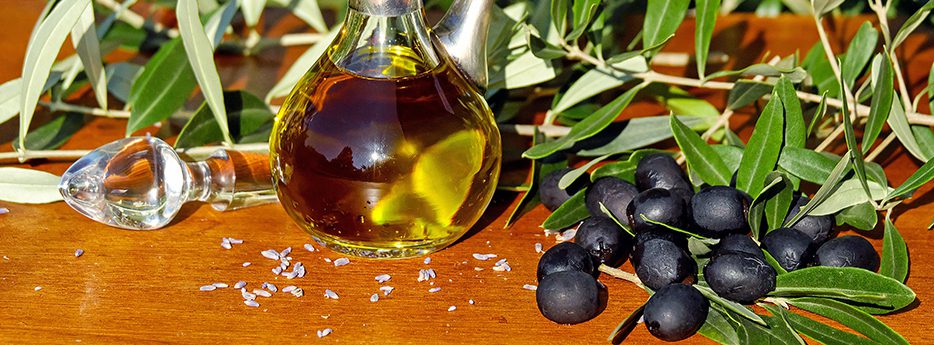

As a society, we’re obsessed with the fountain of youth. We’ve all heard the legends about futile attempts to find a way to live forever. Many of us have fallen for modern myths of aging as well.
We’ve invested our money and put our trust in products and procedures that promise to prevent the process as long as possible. But will they do what they purport? How do we know?
To answer, we must ask additional questions, examining the evidence behind these myths of aging to truly protect our health and live as long as possible. Evidence is established through a long process of conducting research and building on it.
In a new series from the Rutgers Institute for Health, Health Care Policy and Aging Research, we will review the science behind some of the modern myths of aging, in search of truths to help guide our decisions. Read part 2 | Read part 3
First up: “Olive oil is healthy.”
Olive oil has become a big part of modern day diets because of the belief that it’s healthier than other types of oils. In 2017, the global olive oil market was valued at $8 billion, and it is projected to grow to $11 billion by 2050, according to industry reports.
Extra virgin olive oil is refined and a good source of monounsaturated fat and antioxidants, which are believed to be more beneficial for cardiovascular health than saturated fats. The federal government’s Dietary Guidelines for Americans report advises that less than 10% of daily calories should come from saturated fats.
“Strong and consistent evidence shows that replacing saturated fats with polyunsaturated fats is associated with a reduced risk of (cardiovascular disease) events (heart attacks) and (cardiovascular disease)-related deaths,” the report states. “Some evidence has shown that replacing saturated fats with plant sources of monounsaturated fats, such as olive oil and nuts, may be associated with a reduced risk of (cardiovascular disease). However, the evidence base for monounsaturated fats is not as strong as the evidence base for replacement with polyunsaturated fats.”
In this regard, olive oil may be healthier than other options like butter, but it is not lower in calories. For example, a tablespoon of olive oil has about 120 calories, while a tablespoon of butter has 102 calories. In excess, olive oil still may be associated with cardiovascular risks and other health concerns related to caloric intake.
Other studies have found olive oils with higher phenolic compounds, or healthy antioxidants, may be protective of health. One experiment involving 200 healthy adults found proportionally increased cardiovascular benefits in olive oils with higher phenolic compounds, and sufficient evidence has shown that the phenolic content and antioxidants in olive oil help to reduce heart disease risk factors.
Some counterevidence has shown that low-quality olive oil when overheated can form harmful compounds known as lipid peroxides, which pose health risks, including cancer. Additionally, one study of nearly 3,000 adults found higher levels of free fatty acids found in low-quality olive oil increased hypertension risk by 58%. Other studies of the Mediterranean diet have not consistently found health benefits to be directly related to olive oil, rather to low meat, high vegetable, and high fruit and nut consumption.
To get the most potential benefits from olive oil and avoid potential risks related to quality and stability, it’s best to stick with extra virgin olive oil and avoid unregulated labels such as “first pressed,” “cold pressed,” or “pure” olive oil. Olive oil also should be used sooner rather than later once bottled or opened for potential antioxidant benefits. Evidence has shown healthy antioxidants in extra virgin olive oil degrade significantly during the first six months after packaging when stored at normal room temperature.
Ultimately, unhealthy foods won’t be healthier by adding olive oil. Choose olive oil and other products carefully, and remember to ask questions and consider the evidence before investing your money or changing your diet. Above all, leading a healthy lifestyle in general can reduce your risks of cardiovascular disease and other health problems.
Watch Institute for Health Director Dr. XinQi Dong’s mini lecture on the Modern Myths of Aging for the Rutgers University Alumni Foundation: